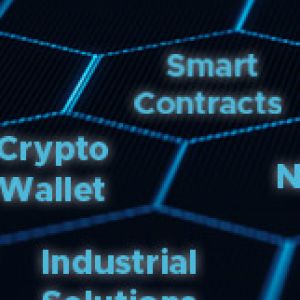The introduction of DAOs (decentralized autonomous organizations) is one of the most crucial applications that blockchain powers. DAOs remove the need for centralized coordination and manual intermediation while creating decentralized processes in business. In addition to ensuring fair and inclusive decision-making, they facilitate high levels of transparency, automation, and cost savings. Continue reading this quick guide to get detailed insights into decentralized autonomous organizations, including their advantages for building on an organization or business, their basic building blocks, and more. Also, discover more about a pre-built DAO solution of Scaffold Smart Contracts by Oodles, a hub of pre-code basic architectures of NFT and smart contract applications, such as DAO, that significantly reduces time to market.
What is a DAO? A Brief Explanation
A decentralized autonomous organization is a blockchain-powered solution that enables a business to function without any centralized authority or intermediaries. It distributes control among all stakeholders. They can use governance tokens associated with a DAO to vote on various rules or changes across processes. Their voting power is generally equivalent to the tokens they possess.
It is the self-executing smart contracts on blockchain where all the rules of an organization exist. They are commonly known as the backbone of a DAO. Once smart contract developers make a smart contract go live on Ethereum, those rules are impossible to change.
DAOs are decentralized. Therefore, all their activities and transactions remain to secure a blockchain, and any DAO participant can view them.
DAOs represent the novel concept of digital democracy. It enables all stakeholders to engage with an organization’s activities and take part in making vital decisions. They operate without any form of central authority, which imposes its views, turning a blind eye to the opinions of other members.
DAOs are indeed groundbreaking and can shape the way organizations operate. So far, business areas such as grant funding, pool investment, collecting, charitable funds, worker collectives, freelance networks, etc., have successfully embraced this model of business.
In general, DAOs create unique funding opportunities and promote democracy. Thus, it’s safe to say that more and more industries might shift to a decentralized way of managing their businesses.

DAO Benefits for an Individual and an Organization
Open Source
Trustless
No Shutdown
Chief Components Of Decentralized Autonomous Network
Open Source Code
DAO Token
Smart Contract
How Does a DAO Work?
- A core team of community members establishes the DAO rules through the use of smart contracts.
- Smart contracts work as a foundational framework on which the DAO will eventually operate and are thus visible, verifiable, and auditable by all members.
- The DAO platform issues tokens to decide on different ways to receive funding and bestow governance.
- This protocol allows the DAO to sell tokens for raising money and filling the treasury.
- Token holders are issued voting rights in return for their fiat and this is proportional to their holdings.
- The DAO is ready to be deployed once the funding completes. The code is pushed to production and cannot be modified without a consensus concluded via member voting.
Pre-Built DAO Solution Development by Oodles
Keeping in mind the emergence of DAO, the team of blockchain developers at Oodles has developed a DAO solution/governance token. Precisely, they have prepared a basic architecture of DAO governance token. With this development model, there’s no need to develop a DAO from scratch. Blockchain enthusiasts planning to launch a DAO can significantly reduce their time to market with pre-built DAO solutions. Essentially, the DAO module built by Oodles facilitates the launch within a few weeks instead of months. Additionally, it is not similar to a white-label DAO solution, which permits less customization functionality. With the Scaffold DAO solution, you can make customization as per business and user requirements.


